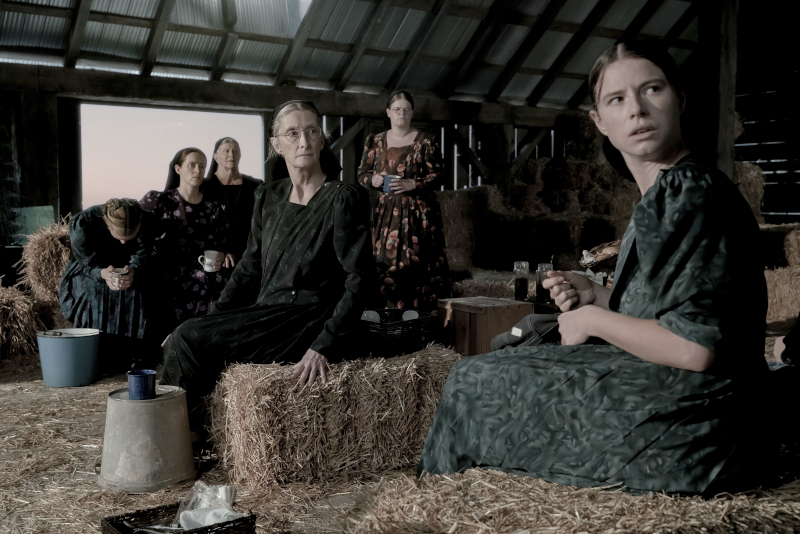Director – Sarah Polley – 2022 – US – Cert. 15 – 104m
*****
Should we stay or should we go? Following an incident of mass sexual abuse in an isolated religious community, its women debate the question, stay and fight – or leave? – out in UK cinemas on Friday, February 10th
Here’s a film that defies the rule that, by rights, a bunch of people talking to one another in one location ought to make for tedious cinema. (Such outings usually work very well on the stage, a medium about a bunch of people talking in one location.) Yet Sarah Polley’s adaptation of the novel Women Talking proves electrifying. It’s based on a novel by Canadian author Miriam Toews which is in turn based on horrifying real life events (although the book is “an imagined response to real events”, rather than an attempt to actually conjure or describe those events).
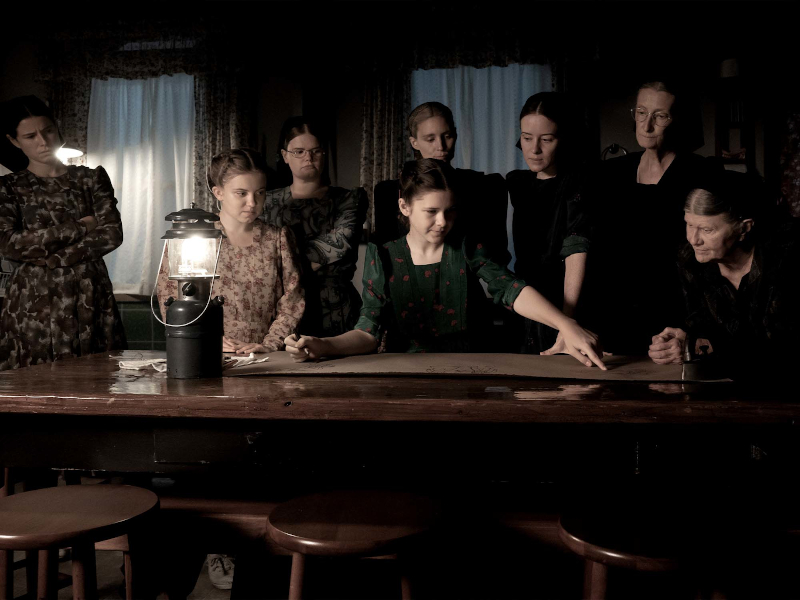
Between 2005 and 2009, in an isolated Mennonite community in Bolivia, over a hundred girls and women were raped in their sleep. Their discoveries were initially dismissed by the community’s menfolk until it came to light that a small group of men had sprayed the interiors of the victims’ houses with animal anaesthetic to render them and their families unconscious. Toews’ novel isn’t interested in the specific geography beyond the rural isolation aspect, employing fictional place names. Nor is she interested in exploring the seedier aspects of all this. Her fascination lies rather with the women and their reaction to it.
The group of male suspects have been arrested by the authorities and the community’s other men have left for town to post their bail so that they can be brought back to the community while they await trial, which will also give the women a chance to forgive them. All very male-centric. But what of the women themselves?
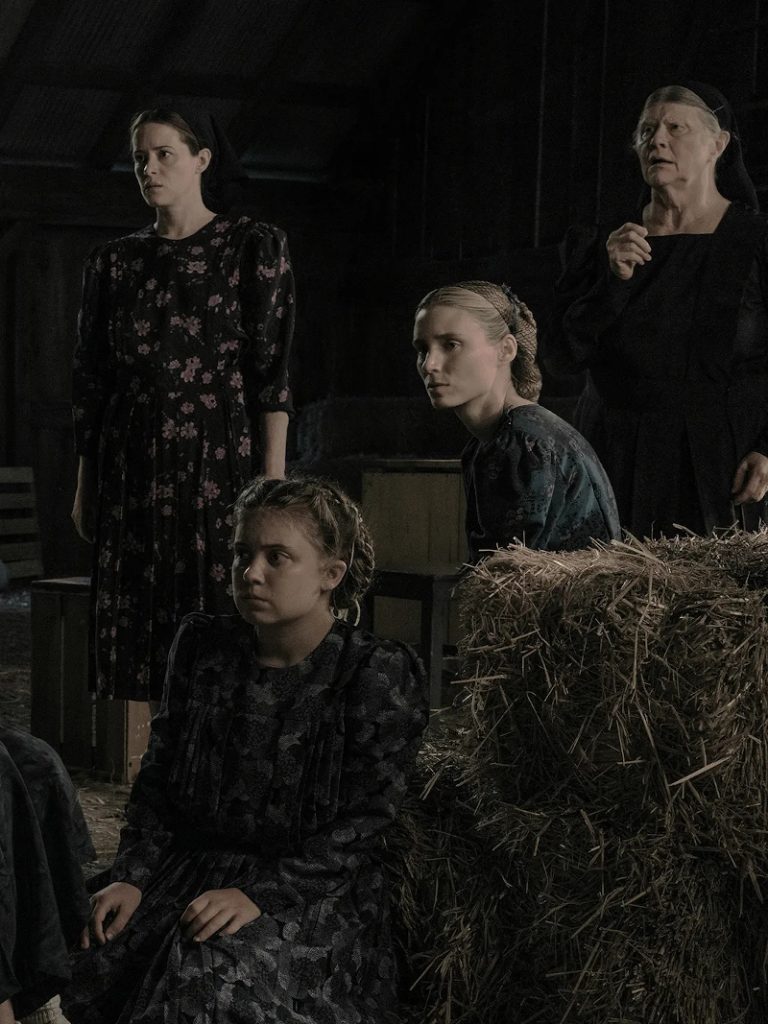
I haven’t read the book myself, only seen the film which, a few disturbing flashbacks of the atrocity aside, starts while the men are away, with the women gathering in the barn at the centre of the community to hold a referendum. There are three options on the ballot paper: stay and do nothing, stay and fight, and leave. For stay and do nothing, read: stay and forgive.
When the results are tallied, the first option gets hardly any votes but the other two are tied. So a representative group of the women stay in the barn to talk it through so that they can come to a decision before the men return so that they, the women, can take action one way or another. So the bulk of the film consists of the various women talking through the issues. They are tough issues, though, and passions can run high. And in some sense, because these discussions are about the way (some) men treat women, they transcend the specific time and place of the story – which is partly why the de-geography’ed setting works.
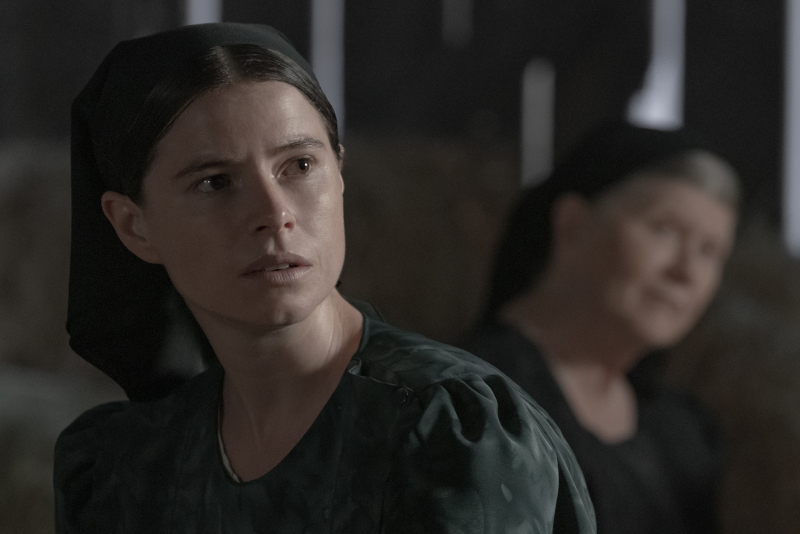
Further brief flashbacks of the atrocity pepper the film, but they never goes into any detail as to exactly what happened, it’s more like a raw memory hovering over these women’s communal life, a terrible wrong that has been visited upon them because of their gender. To play the women, initiating producer Frances McDormand and director Polley have assembled as incredible array of female acting talent who feel to a woman that they’ve been deployed here because of their considerable acting abilities and suitability for their roles rather than for any perceived marquee value.
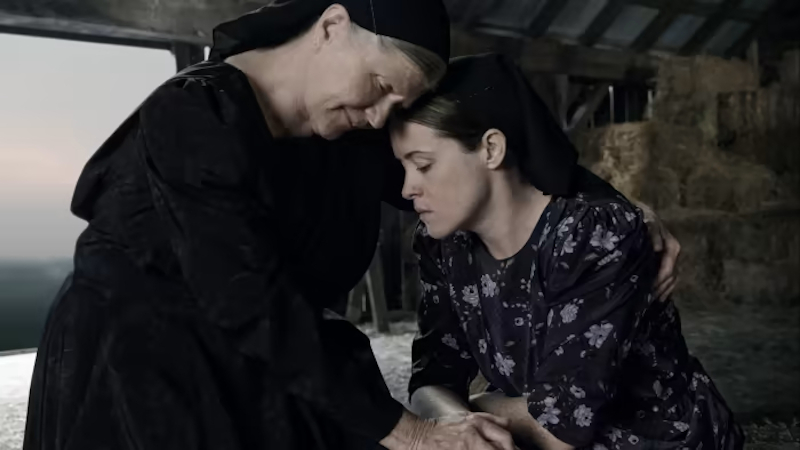
There are two older matriarchs, Agata (Judith Ivey) and Greta (Sheila McCarthy), their two sets of two grown up kids Ona (Rooney Mara) and Salome (Claire Foy), and Mariche (Jessie Buckley) and Mejal (Michelle McLeod), and two young girls Neitje (Liv McNeil) and Autje (Kate Hallett). On the fringes of it all, McDormand plays a third matriarch, Scarface Janz, one of the few who voted to stay and forgive and who, with daughter Anna (Kira Guloien) and granddaughter Helena (Shayla Brown) in tow, is invited to take part in the early stages of the discussion.
The women have never been taught to read and write, so to assist them, August (Ben Whishaw), one of the younger men in the community, has agreed to facilitate and take notes of everything that’s said, condensing the arguments on both sides onto two large sheets of paper.
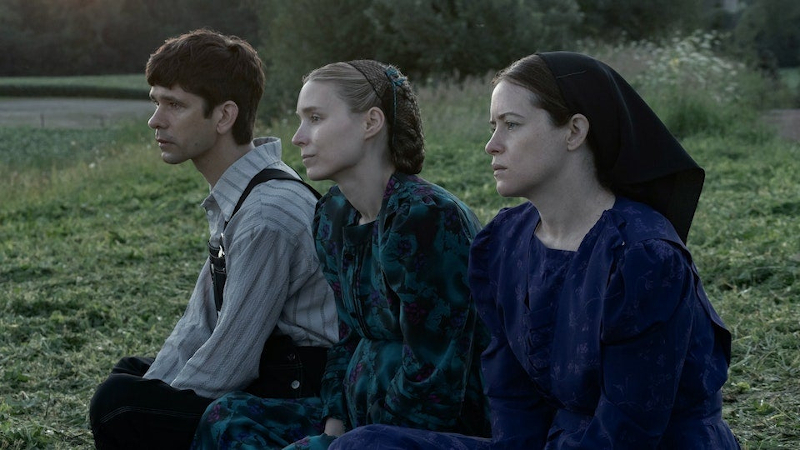
As the conversations take place, conflicting views are expressed from both sides and serious religious questions are asked from within a faith perspective. These are women living, moving and operating within their Christian faith despite the horrible circumstance in which they find themselves and are trying to go forward, an aspect of the story sensitively put on the screen by screenwriter and director Polley (presumably walking on the footsteps of author Toews in this regard, although Polley possesses the skills required to put this on the screen in a way that Toews probably does not).
As someone who has personally struggled with the Christian faith through my own adult years, it’s refreshing to see a film that tackles characters of faith sensitively and with great nuance without feeling the gratuitous need to rubbish Christianity, as so often happens in the movies. These religious people are portrayed here with all manner of issues, collective and personal, just as we all possess.
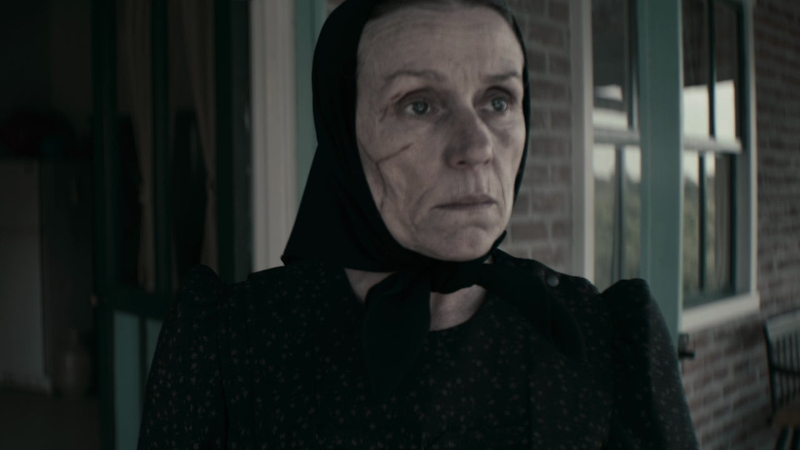
There’s much food for thought in the various things that are said, debated and argued by these women characters here, and the film will almost certainly fuel considerable discussion and repay multiple viewings. Despite the sound of its subject matter, it’s conceived as a big screen experience and that’s the best way to see, experience and engage with it.
And to think, when all’s said and done, that this extraordinary movie is basically just a group of women having a discussion in a room.
Women Talking is out in cinemas in the UK on Friday, February 10th.
Trailer 1:
Trailer 2:
